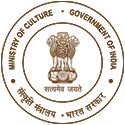Senor journalist, columnist, academician and former Director General of Indian Institute of Mass Communication, New Delhi, Prof. K G Suresh stressed the urgent need to shift from problem-based journalism to solution-based journalism. He even proposed to draw the framework of such courses in media education. Prof. Suresh was speaking at a Webinar on “Non-Violent Communication” (NVC) organised by the largest journalists’ organisation of the National Capital, Delhi Journalists Association (DJA) in association with Gandhi Smriti and Darshan Samiti on May 27, 2020. Delhi Journalists Association (India) proposed to take the discussion on NVC to all over the country.
The prominent speakers who joined the discussion included Dr. Vedabhyas Kundu, Programme officer GSDS; Shri Manoj Mishra, President, National Union of Journalist (India); Shri Umesh Chaturvedi, journalist, author and researcher; Dr. Pramod Kumar, author and social thinker, Shri Manohar Singh, Chairman Delhi Journalist Association and Shri Amlesh Raju, General Secretary, Delhi Journalist Association. Around 30 participants mostly academics, journalists, social workers, educationists from Chandigarh, Bihar, Delhi, Indore and Rajasthan took part in the webinar. The discussion was moderated by Shri Manohar Singh.
Initiating the discussion, Dr. Vedabhyas Kundu spoke of the elements of Non Violent Communication (NVC) in context of Indian culture and also stated the Buddhist principles of coexistence and compassion. Calling Mahatma Gandhi as the progenitor of non-violence, Dr. Kundu said that even during the most crucial phase of the freedom struggle, Mahatma Gandhi kept the channels of communication open in his dealings with the British. He also stressed on the need to include the Gandhian approach to NVC in the syllabus/curriculum of media studies.
In his address, Shri K G Suresh while reiterating what Dr. Vedabhyas Kundu spoke expanded further by saying that the tradition of communication in India is there since ancient times from the Vedas and the Upanishads and said that the Indian tradition of communication has never been adversarial; instead it has been of acceptance. Elaborating further, he said that there’s a need to adopt the Indian model of communication from Buddha to Swami Vivekananda to Mahatma Gandhi who was one of the greatest communicators. While saying that media’s role is not just to spread information, it is also to educate people, Shri K G Suresh said, “There is an urgent need to shift from problem-based journalism to solution-based journalism”. Shri Suresh also proposed for drawing a framework of courses in journalism.
Shri Manoj Mishra in his address spoke of Mahatma Gandhi’s distinctive process of finding out the truth in his sojourn in Champaran and that never in his dealings with either the peasants or the British authorities Mahatma Gandhi had instigated the people to take law in their hands. He also spoke about the effective role of media which he said can diffuse any amount of tension.
Speaking about what he called the ‘tamasha’ culture of television journalism, Shri Umesh Chaturvedi drew the context of the present COVID-19 pandemic and said that the problems which the migrants have been facing could easily have been prevented, had television media played a more proactive and informative role in giving people the right information instead of aiding in spreading rumours.
Dr. Pramod Kumar touched the ideas of journalism of both Pt. Deen Dayal Upadhyaya and Mahatma Gandhi and said that negative news that has taken over the media today has to be avoided and journalists must adhere to such principles even in trying times. He also reflected upon the culture of language while speaking about the electronic media which he felt has gone from bad to worse.
Among others who also took part in the webinar included senior Gandhian social worker Shri DinaNath Prabodh from Gandhi Gyan Mandir, Madhepura, Bihar, Shri Suresh Sharma, Shri Dheeraj Arya, Smt. Kamna Jha, Shri Ramesh Chand Sharma, Shri Ashok Malik, Shri Ashutosh Kumar Singh, Shri Hardayal Kushwaha, Shri Manmohan Sharma. Shri Amlesh Raju proposed the vote of thanks.
Need to shift from problem based to solution based journalism: K G Suresh
Webinar












